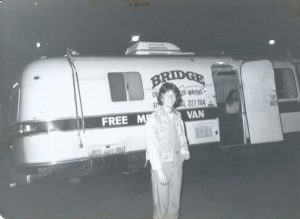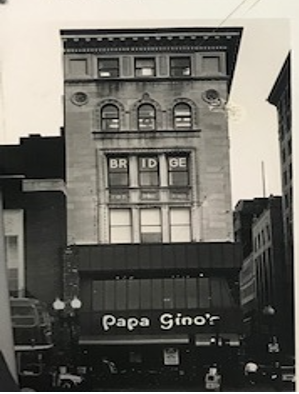Our History

In the late 1960s, a dedicated group of women, teachers who were members of the order of the Sisters of St. Joseph in Boston, began reaching out to disaffected, troubled, and often drug-involved youth on the Boston Common and in Cambridge, which had become gathering places for young people who had no place else to go.
At first, the Bridge founders provided sandwiches, cold drinks, and non-judgmental conversations that turned into supportive counseling, referrals to health care, psychiatric services, a way back home if possible, and planning for alternatives when going home was not an option.
Yet, by 1970, it was clear that traditional services weren’t going to work for this new and growing homeless population. Bridge Over Troubled Waters was formed, under the pioneering leadership of Sister Barbara Whelan, Sister Marie Keough, and Sister Barbara Scanlon.

Collaborating with a group of physicians from Massachusetts General Hospital, Bridge organized a volunteer-run mobile medical van to bring emergency and preventive health care to the streets. They were at the forefront of a national movement to develop innovative programs and practices to reach the most vulnerable, high-risk youth and provide the age-appropriate continuum of care that could enable them to transform their lives and grow into fulfilled, self-sufficient adulthood.
Bridge Over Troubled Waters became – and after more than 50 years remains – a national model and program incubator for youth development services that are effective in helping the most troubled and vulnerable homeless youth to turn their lives around.
If you are between the ages of 14-24 and looking for help, call 617 423 9575